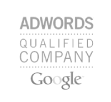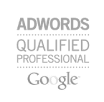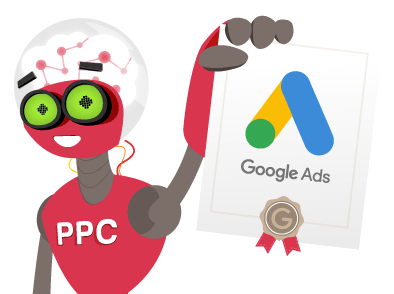For law firms, there are generally two goals when designing a marketing campaign. One is to get more clients, and the other is to build your brand. No matter what your goal, investing in online marketing is essential – and, like it or not, Google is the way to go about it.
There are two ways to approach search engine marketing on Google: pay per click (PPC) and search engine optimization (SEO). Which is the better option for your law firm? Let’s take a look.
The Basics: PPC vs. SEO
Every time you Google something, you get two different kinds of results: organic and paid. Organic results are based solely on what the Google algorithm believes you’re searching for. This is determined, in part, by the appearance of keywords – as well as the expertise, reliability, and popularity of the site. There are a lot of pieces to the Google search algorithm and part of successful SEO is learning how to tap into those things. To sum it up, the better a website’s quality, the higher it ranks in organic Google search results.
Paid results are, well, paid for. They’re a completely separate part of Google advertising. Paid results appear at the very top of the search results and are usually clearly marked as an ad. There is still some keyword magic involved – as well as smart planning, monitoring, and adjusting the campaign as needed. But your competition consists of those bidding on the same keyword, not the entire internet.
So, which is better? Unfortunately, there’s no easy answer to that. Ultimately, it depends on what you want to achieve with your advertising campaign, the amount of time you have, and how much you’re willing to spend on marketing.
When PPC Is Worth It
PPC advertising is the clear winner when you want fast results. Choose the right keywords and budget, and your ads start to appear at the top of the search engine results page. Pick better keywords and set a higher budget than your competition, and your ad will always appear first.
Another benefit of using PPC is that you can easily see how effective your ad is, including how well each keyword is performing. This gives you a lot of control over because you can tweak the things that aren’t working and enhance the things that are.
Check out this free PPC calculator to see what kind of ROI you can expect. We’ll get into the specifics of what aspects affect your return, but this is a great tool you can refer to any time.
If you’re starting a new law firm and need to build a client base quickly, being the first name that shows up in the search results is hugely beneficial to your bottom line. The same goes for an established law firm that’s trying to grow and gain name recognition.
That said, PPC in and of itself isn’t really enough. Remember that the goal of PPC advertising isn’t to get clicks. You need conversions. That means that, in addition to setting up the right ad campaign, you have to make sure your firm has a website that’s going to draw people in. A PPC ad is just the way to get them there.
To have the best chance at conversions, your website should be polished, streamlined, and specific to your firm. It should provide value to visitors, showing them how you and you alone can solve their legal problems. Content is important too. Spend time building a blog and posting useful information to keep bringing visitors back.
Remember that most people spend just as much time surfing the web on their smartphones as they do on a PC or laptop. That means the mobile version of your website has to be clear and easy to navigate as well.
Don’t Ignore SEO
While PPC is a better option short term, don’t ignore SEO. If you want to build your firm’s brand into the type of firm that doesn’t need to run PPC ads to attract clients, SEO is key.
Back to your website. We mentioned content as one of the factors that add value to your website. It’s also one of the best ways to work on SEO. Creating blog posts or other long-form content is an ideal way to experiment with keywords and add value to your website.
It can take anywhere from six months to a year or more to see the benefits of a successful SEO campaign. But, over time, SEO delivers higher returns. When you do SEO right, your law firm organically appears in the search results.
Spending Money vs Time
Another big difference between PPC and SEO is cost. Obviously, PPC involves more of a financial investment. But here’s the thing: you can recoup that cost quickly with an effective ad. Depending on the cases your law firm takes on, you may only need your PPC ad to get one or two conversions for the campaign to pay for itself.
As we mentioned, SEO doesn’t cost any money but it does require a significant investment of time, and not just the months waiting for a return. Successful SEO needs constant tweaking, posting, blogging, and interacting with people visiting your site and social media pages. Someone has to pay close attention to what’s working, what isn’t, and be ready to make regular changes on an ongoing basis.
How PPC and SEO Work Together
For most law firms, the best strategy is to use PPC and SEO together. Start with a heavy, focused PPC campaign to maximize attention, build recognition, and grow your client list. Keep your PPC campaign going as long as it’s working and as long as you need it.
Remember when we said that PPC campaigns showed you what keywords were working and which ones weren’t? Keep that in mind when working on your SEO campaign. If a keyword has great results in your PPC campaign, try integrating it into your SEO. If a keyword is a dud in your PPC campaign, don’t focus on it in your SEO.
Ultimately, the goal should be to have an effective PPC campaign to drive interest, expand your firm’s client base, and begin building a stellar real-world reputation. Over time, satisfied clients and an effective SEO strategy lead to your firm rising in organic search results, building your brand, and drawing higher profile clients your way.
One Team or Two?
Whether you use one team or two to manage PPC and SEO for your law firm ultimately depends on their experience and capabilities. Some would argue that using two different teams allows each to really focus on one aspect of web advertising, which is a valid argument.
But here’s another thought: if a single team is capable of handling both, there are some benefits.
First, it’s much easier to keep everyone on the same page. You and your team can work together on a specific set of goals for your overall brand, and you can rest assured that your PPC and SEO campaigns both stick to the same branding.
Second, as mentioned, PPC and SEO ultimately work together. If they’re being run by the same team, there’s a much greater chance that they’ll share information about what’s working and what isn’t.
Related Posts You Might Want To Read










